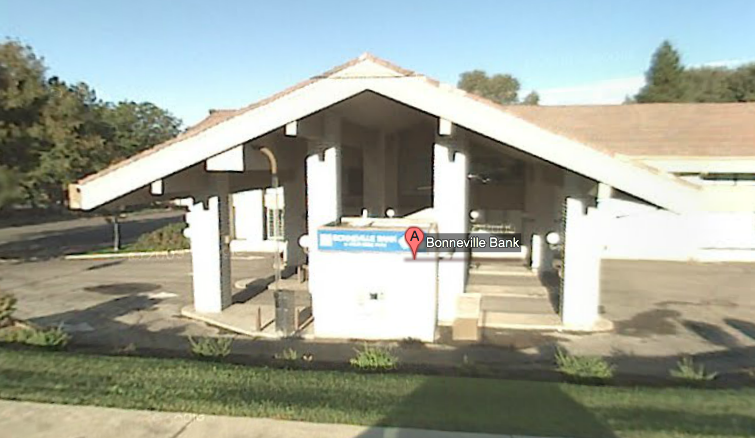
On Freedom Boulevard in Provo, Utah, nestled between the mountains of Uinta National Forest and Lake Utah is a nice little one-branch bank, pictured above. It looks innocent enough. Its CEO, Doug Christensen, invites personal emails from his home page. Ping him quickly, as I assume he’s soon out of a job.
The Federal Reserve last week approved Green Dot to purchase the bank, thereby becoming a bank holding company. The bank is tiny, with less than $40m in assets. If the filings from last March are any indication, the purchase price was around $15m with an additional $10m contribution to core deposits. What’s the big deal? I’m not sure, honestly.
It’s the first pure prepaid program manager to own a bank. It will give Green Dot greater control over its destiny. Instead of asking for approval from a partnering bank for anything new they might want to do, they can instead ask their regulators directly. Presumably this is better. We’ll see, since the regulatory environment doesn’t look favorably on prepaid or many forms of adventurous consumer finance (mostly not for good reasons, to this observer).
Control to what end? I’ll join the speculators who assume some kind of savings product offered through the prepaid account. Presumably some kind of “real” account that’s functionally the same as prepaid, but can be marketed differently and avoid the negative stigma associated with the word “prepaid” for many. Perhaps BIN sponsorship to other program managers, much like the Green Dot Money Pack allows cash loads for cards by third parties, like American Express, Plastyc and many others. Perhaps additional transaction products, like bill pay and money transfer, that can take advantage of a national bank charter without needing to register as Money Services Business (MSB) in most states. I’d love to see credit products, but Green Dot’s CEO, Steve Streit, has never been a fan. Without credit, it seems like a bank charter is underutilized.
Beyond control, owning a bank will provide some economic efficiency. When Green Dot has transitioned its customers from its current banks in 18 months, it will no longer have to pay a third party a fractional amount of interchange and regular account fees. At scale this is undoubtedly a big number, but it comes with a real cost: not just a public company, but now a bank, Green Dot will have real costs associated with regulatory compliance. I’m sure they’ve done the math, but given what a commodity BIN sponsorship is these days, the economic advantage isn’t overwhelmingly clear to me. The move certainly steers Green Dot clear of Durban-inspired debit card fees, since banks smaller than $10b are exempt.
Given that Walmart has a stake in Green Dot, I wonder if the move might bolster a renewed application for a bank purchase by the retail giant. It tried and failed several years ago, thwarted by the small bankers association. Perhaps this transaction offers a precedent.
While it’s a big move, and one that sets the stage for an expanded universe of players serving the underbanked with greater scale and efficiency, I lack the insight or imagination to be blown away. I assume I’ll be proven wrong.
Arjan: I also think this is a curious move for Green Dot, but am interested to see where they are with this purchase in a year. I believe there are some innovating approaches that happen when a non-traditional relationship between companies is formed.